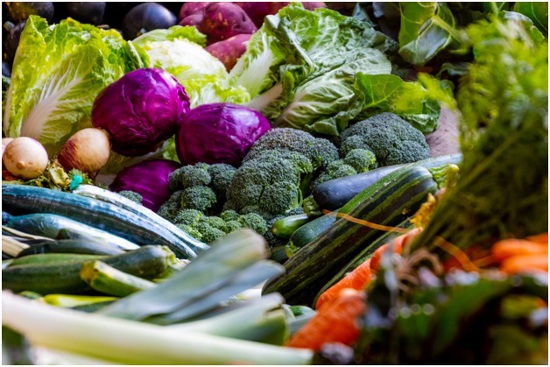Oxalates or oxalis acid are natural substances in many foods. They attach to calcium in the course of digestion in the stomach and exit the body in stool. The oxalic acid that is not bound to calcium travels as a waste product from the blood to the kidneys where it exits the body in the urine.
Oxalates are also referred to as ‘anti-nutrients’ as they actively steal nutrients from the body when we eat them. Other than oxalates, anti-nutrients also include things like phytates and lectins.
What makes oxalates a thing to worry about is that unlike something like trans-fat, oxalates are found in the healthiest foods that include-
- Cocoa Powder
- Swiss Chard
- Beet Greens
- Spinach
- Sweet Potatoes
- Turnip Greens
- Rhubarb
- Peanuts
- Blueberries
- Legumes
- Kale and more…

The role of anti-nutrients like oxalate is to provide protection for plants against everything harmful from bacteria to insects, birds, animals, and even humans.
Experts at Yes Wellness say that the oxalates provide protection to plants in a few different ways. For starters, oxalates cause a bitter taste in foods that prevent animals and people from eating them. Moreover, oxalates are not easy to digest and prevent our body to easily absorb them.
Oxalates and Health
Two aspects of oxalates have been broadly studied from a medical perspective – their relationship to calcium absorption and metabolism and their relationship to kidney stone formation. 8 out of 10 stones are calcium oxalate stones.
What Happens if you Consume Oxalates?
It is impossible to have an oxalate-free diet as oxalate occurs in varying amounts in almost every plant food you eat. If you are eating food, it means that you are consuming a certain amount of oxalate.
Oxalates, if consumed in very large quantities, can be toxic – like rhubarb. However, it would require around 10 pounds of rhubarb leaves (22 grams of oxalates) to reach toxic levels for a fully-grown adult.
But oxalates can be problematic even in smaller quantities as well – best example- kidney stones.
Kidney stones are incredibly painful and if you have had them previously, you are most likely to develop them again.
Kidney Stone Formation
In several scientific studies, some individuals have shown to be ‘hyperabsorbers’ of oxalic acid from the intestinal tract. Simply putting, their bodies accept more oxalate than would normally be expected. In general, the greater the amounts of oxalate absorbed into the body, the greater the amount will reach the kidneys and raise the levels of urinary oxalates. When incorporated with high levels of urinary calcium, there can be an increased risk of formation of calcium oxalate kidney stones.
If you develop renal stones, your doctor might recommend a low-oxalate diet.
Other medical conditions associated with excessive oxalate intake include:
- Painful joint deposits
- Lipid Peroxidation (associated with atherosclerosis)
- Interference with the function of Glutathione
- Painful inflammation
There is no way you can totally avoid oxalate consumption as almost every food you eat contain oxalates in a certain amount. But it doesn’t mean oxalates are all bad for your health. Like most of the things, there is another side to the story.
Benefits of Oxalates
You might not know but our body doesn’t only acquire oxalic acid through the food we eat. Our body also produces oxalic acid on its own, in the liver.
So the big question is why would human body produces an anti-nutrient like oxalates.
Truth to be told, there’s not much the scientists and researchers are able to decode but one theory states that oxalates act as ‘chelators’ meaning oxalates help carry toxins out of the body.
This seems too far-fetched but the fact that oxalates aren’t well understood yet makes it difficult to classify it as ‘good’ or ‘bad.’
So when considering oxalates, you must also consider:
- Factors that impact how you handle oxalates
- Personal likes and dislikes
- The proportion of high-oxalate to low-oxalate
- Healthfulness of the overall diet
Should I Care about Oxalates?
Experts at Yes Wellness claim that if a healthy individual eats a varied diet throughout the day, he/she doesn’t need to worry about oxalates. The healthy individual, on average, will consume 200-300 mg of oxalates per day without any health issues as a result.
However, there are two classes of people who are required to be aware of the potential risk factors of excessive oxalate consumption:
- Individuals with health conditions impacting their ability to properly handle oxalates
- Individuals who are on a restricted diet and may consume a larger than average amount of oxalates

Oxalates and Leaky Gut
Leaky Gut or Increased Intestinal Permeability occurs when the constricted joint between the cells that make up the intestinal lining are incapacitated and become loose. Hence, the gap formed between the cells allows large particles to seep into the bloodstream.
People suffering from leaky gut tend to absorb a large amount of oxalates into the bloodstream as compared to the people without leaky gut while eating the exact same meal.
Final Words
Although oxalates may have many health benefits that science hasn’t caught up to yet, it is still important to keep a tab on your oxalate intake.
